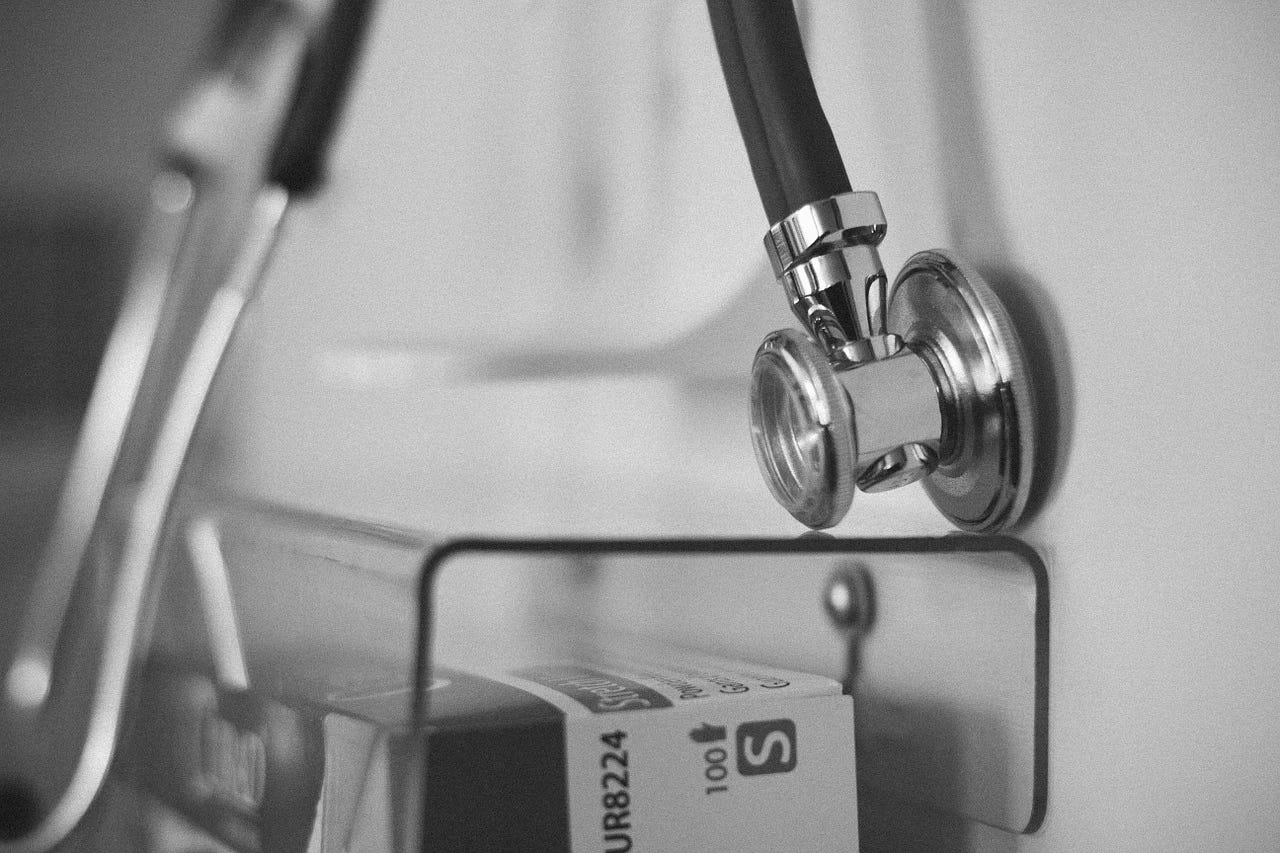Everyday Activities with Alarming Outcomes
Exploring personal observations and links to recent research in racism and health
Last week, I took a day off. No, not for something great. I spent the day in healthcare facilities. Since I had planned the whole day, I added another needed appointment.
This additional visit shook me the rest of the day and I never made it through the door.
There it was.
Right on the door.
A well-known sign of hate.
This was a medical doctor’s office. I froze. A maskless staff member kindly opened another door and came out to give me instructions on which door to enter. I fell straight into the sickening feeling of Little Red Riding Hood led into the cottage with the wolf.
Well, this crimson caped character turned and walked away.
I think about health a lot. Personally. Professionally. Like many other high risk and chronically ill people during the pandemic, it is a constant brick on the mind for that reason too. The pandemic has shown us the good, the bad, and the unfortunately ugly of society and human behavior.
Check out my book chapter on Diversity, Equity, and Inclusion Research in Public Health and the Health Professions Education During a Pandemic and Societal Anti-Racism Protests. It was published in Researching in the Age of COVID-19 Volume II: Care and Resilience by Policy Press, edited by Su-Ming Khoo and Helen Kara.
Healthcare and public health are two different topics, but often intertwined, linked, and confused. Casually, many people have heard about the racial disparities of the COVID-19 pandemic. It takes very little to figure out that the “haves” benefit from more choice and protections than those with less privilege. Yet, a research article published last week spelled it out just a little bit better.
To summarize this recent research, the work investigated white folks’ awareness of racial disparities related to the COVID-19 pandemic. The findings were that perceiving greater racial disparities reduced fear of COVID-19, then the exposure to information about these disparities reduced empathy. From there, reduced empathy and fear indicate reduced support for safety precautions. After all this… the overarching finding: “highlighting racial disparities may paradoxically perpetuate racial inequalities.”
Interested in the original research article? Check out “Highlighting COVID-19 racial disparities can reduce support for safety precautions among white U.S. residents” published in Social Science & Medicine.
So… is pointing it out the problem? Or is it an active choice based on prejudices? The study describes a potential for a split pathway. Those who know more about systemic and structural issues may be more concerned about the impacts related to COVID-19 as well. However, the overall findings indicated that when the impacts were framed as a result of systemic issues and racial disparities, the concern about the pandemic was lower.
This shows us that privilege is easily recognizable. Perhaps just not in the intended way. Here we see the quiet part being said aloud: “these findings suggest that publicizing racial health disparities has the potential to create a vicious cycle wherein raising awareness reduces support for the very policies that could protect public health and reduce disparities.”
Earlier in the week, I was chatting with someone about an interview of a formerly popular musician by a news media celebrity. They were saying this quiet part aloud too. More often, the quiet parts of something impacting others, affecting others, or hurting others shift the importance onto the others. This is different from “empathy fatigue.”
The concept of empathy fatigue suggests that our empathy is finite and we can run out of energy to care. Overall, empathy fatigue is the negative consequences of repeated exposure to stressful or traumatic events, with the potential for both emotional and physical manifestations.
What we are seeing today is a lack of care and a deeper foundation in racism and classism. It appears to be both a complete indifference to the suffering of others and a manifestation of deeper prejudices. Healthcare alone has so many different health inequities, access issues, and barriers to care. As a fairly privileged, highly educated person with health insurance, I recognize these privileges and yet get frustrated when I have a hard time getting the medical care I need. Apparently, I am also very bothered when I feel that I am being coerced into a place of hate in healthcare. It often leads me to reflecting on how these situations impact others who may have less privilege or are more actively marginalized.
This COVID-19 study was not the first to observe the opposite of the intended impact when people know about racial health disparities. Other COVID-related impacts have been documented in this space. Similar outcomes more broadly in emphasizing health disparities, incarceration trends, and criminal justice, as well as the challenges of how to raise public awareness are also known. These emphasize not only the importance of communication, but also addressing root causes.
Also, the answer to the potentially remaining question: no, the hate sign on the medical office door was not about masks or the pandemic. However, it made me think a bit more about this recent research article and racism in healthcare.
Please wear a mask for yourself and others. Stay safe!






